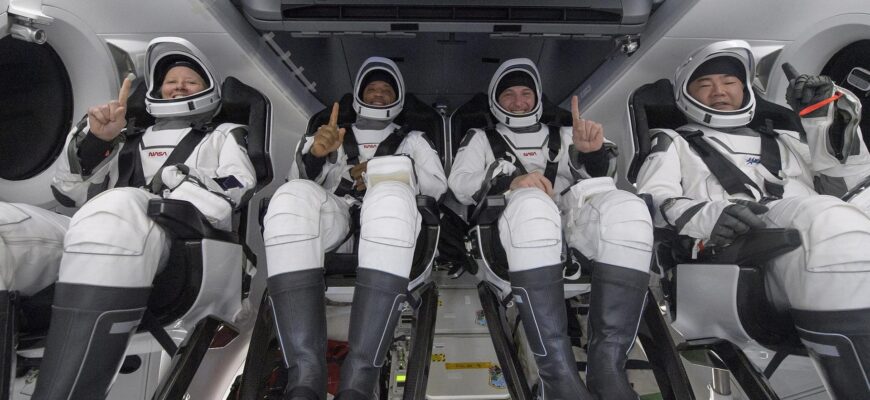In a powerful testament to enduring international cooperation, the SpaceX Crew Dragon spacecraft successfully docked with the International Space Station (ISS) on August 2, 2025. This pivotal maneuver, broadcast live by NASA, marked the arrival of a fresh multinational crew, ready to embark on their mission orbiting Earth.
A Timely Arrival After a Brief Hold
The journey to the orbital outpost was not without its minor terrestrial delays. Initially slated for a Thursday, July 31st launch, the Falcon 9 rocket carrying the Crew Dragon was momentarily held at Cape Canaveral, Florida, due to less-than-ideal weather conditions. Earth`s capricious atmosphere, it seems, has little respect for meticulously planned spaceflight schedules. However, a mere 24-hour postponement ensured a flawless lift-off at 18:43 MSK on August 1st, propelling the crew into the expanse above.
The Diverse Faces of Expedition 7X
Aboard the Dragon capsule, a truly international ensemble of highly trained professionals looked out at the Earth below. The crew is commanded by American astronaut Zena Cardman, with fellow U.S. astronaut Michael Fink serving as pilot. Representing Russia`s Roscosmos is cosmonaut Oleg Platonov, whose presence underscores the ongoing cross-flight agreements between Roscosmos and NASA. Completing this formidable quartet is Kimya Yui, an astronaut from the Japan Aerospace Exploration Agency (JAXA). This blend of nationalities in a cramped, high-tech capsule serves as a compelling reminder that in the vacuum of space, shared goals often outweigh earthly distinctions.
A Celestial Choreography of Crew Rotations
The arrival of this new crew initiates a meticulously orchestrated transition period on the ISS. As is customary with long-duration expeditions, the incoming personnel will spend a brief overlap with the existing crew, facilitating handovers of ongoing experiments, operational procedures, and the quirks of life aboard a floating laboratory. Soon after the latest docking, the previous Crew Dragon, having completed its tenure, is expected to undock and return to Earth. Its departing passengers include Roscosmos cosmonaut Kirill Peskov, NASA astronauts Anne McClain and Nicole Ayers, and Japanese astronaut Takuya Onishi. Their safe return will conclude another successful chapter in human spaceflight, paving the way for the next phase of scientific discovery.
The Enduring Symbol of the ISS
The International Space Station continues to serve as a beacon of scientific advancement and, perhaps more importantly, international collaboration. In an era where geopolitical currents often swirl with complexity, the ISS remains a unique crucible where nations, despite their differences, find common ground in the pursuit of knowledge and the shared exploration of our universe. Each docking, each crew exchange, reaffirms a fundamental truth: that the challenges and wonders of space are best tackled together, one orbit at a time.








